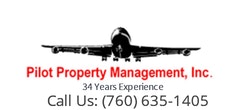Since the law changed to demand secret ballots for the annual elections it has become increasingly difficult for some associations to get quorum at the first attempt. Whereas in the past, members came to the annual meeting to meet the candidates and catch up on the local musings of the board and some of its members and to enjoy an afternoon of socializing, now the voting is secret with specially appointed ballot counters to ensure correct counting and anonymous votes, everyone attending has almost nothing to come for and in many cases they simply forget to vote or choose not to exercise their vote. Reminds me a of a large English speaking country close by, really close by.
What’s a board to do?
Here are a couple of suggestions.
Hold a raffle drawing names from all those who vote for a prize or two.
Save a gift certificate to a local restaurant movie theater, 2 tickets to a community event etc etc
Give one month or more of free monthly dues to the winning voter.
Publish the names of all those who voted and the winner of the contest and their prize.
1073
